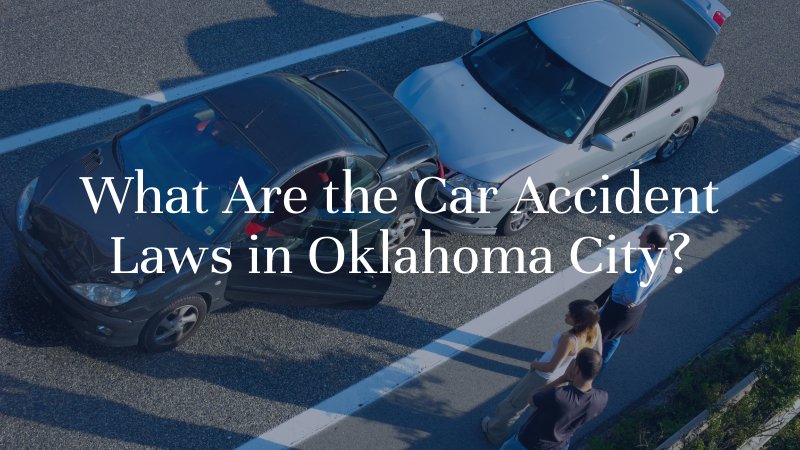What Are the Car Accident Laws in Oklahoma?

It can be difficult to think clearly and keep a cool head after a serious car accident. You may have suffered painful injuries or have injured loved ones with you. In the worst-case scenario, car accidents can cause fatalities and emotional devastation to survivors. However, it’s important to understand Oklahoma’s car accident laws so you don’t face further negative consequences when you’re already suffering after an accident. By knowing the laws and taking proper actions you can protect yourself legally and increase your likelihood of recovering compensation for damages such as property damage to your vehicle, medical expenses, lost wages, and compensation for pain and suffering.
Never Leave the Scene of the Accident Until Cleared by Law Enforcement
Oklahoma law, OK Stat § 47-10-104, compels accident victims to remain at the scene of any car accident with injuries and/or property damage. While at the accident scene, drivers have the legal duty to exchange contact information with the other driver, including name, address, driver’s license, registration, and insurance information. It’s helpful to document this identifying information by taking photos with your cell phone camera if you can move safely without causing further injury.
If a driver leaves the scene of the accident without leaving contact information or before being cleared to leave by police, it’s a criminal hit-and-run. Penalties vary according to the severity of the accident. Leaving the scene is a felony if an injury victim dies from their injury.
Apply Reasonable First Aid to Injury Victims
Oklahoma’s accident laws also require those involved in car accidents to provide reasonable first aid to anyone injured. The law states:
“The driver of any vehicle involved in an accident shall render to any person injured in such accident reasonable assistance, including the carrying, or the making of arrangements for the carrying, of such person to a hospital for medical treatment if it is apparent that such treatment is necessary or if such carrying is requested by the injured person.”
No one expects a driver to perform emergency procedures that are outside of their knowledge or capability, but reasonable first aid means addressing any life-threatening injuries to the best of their ability and providing comfort, reassurance, and transportation if required.
Leave Contact Information After a Parking Lot Fender Bender
If a driver hits a parked car with no occupant and causes damage, Oklahoma law requires them to leave a note with their contact information on the damaged vehicle if they are unable to locate the owner at the scene.
Oklahoma’s Modified Comparative Negligence Insurance Laws
Oklahoma is a fault-based insurance state or one that requires accident victims to file claims for compensation against the insurance of the at-fault party in the accident. Under this modified comparison negligence law, injury victims can recover damages even if they were partly at fault or contributed to the accident. Oklahoma 1979, c. 38, § 1, states:
“In all actions hereafter brought, whether arising before or after the effective date of this act, for negligence resulting in personal injuries or wrongful death, or injury to property, contributory negligence shall not bar a recovery, unless any negligence of the person so injured, damaged or killed, is of greater degree than any negligence of the person, firm or corporation causing such damage, or unless any negligence of the person so injured, damaged or killed, is of greater degree than the combined negligence of any persons, firms or corporations causing such damage.”
Under this law, injury victims may recover a portion of their damages minus their percentage of fault for the accident as long as they were less than 50 percent responsible. In other words, in a claim amounting to $100,000 in damages, a car accident victim who is 25 percent at fault may still recover $75,000 or the limit of the at-fault party’s insurance coverage.
It’s important to hire a car accident attorney in Oklahoma City to represent you in this type of claim since modified comparison negligence laws sometimes incentivize insurance adjusters to assign an undue percentage of fault to the victim to lower the amount they must pay out on a claim.